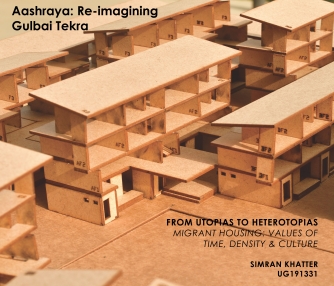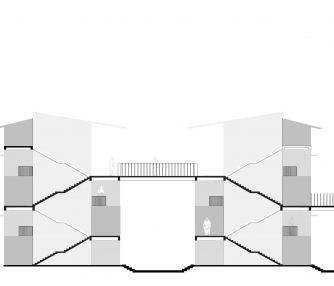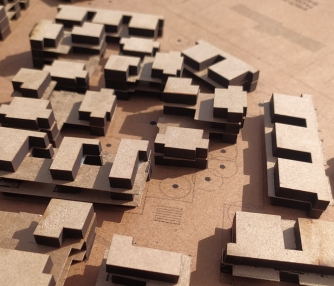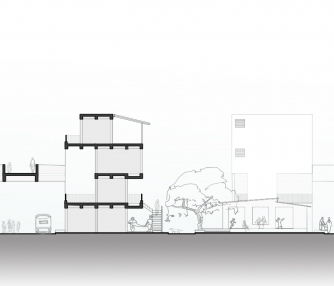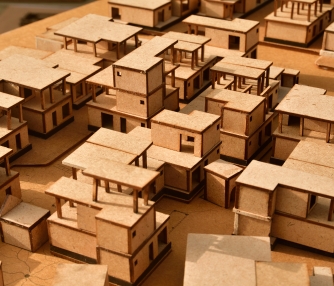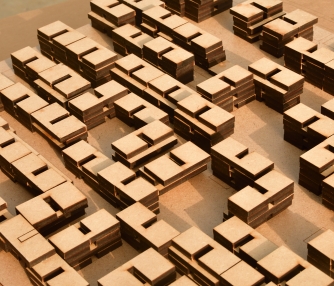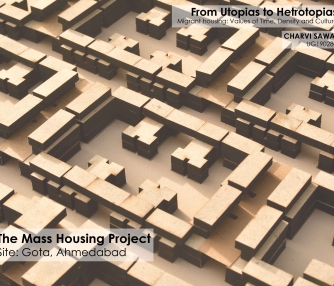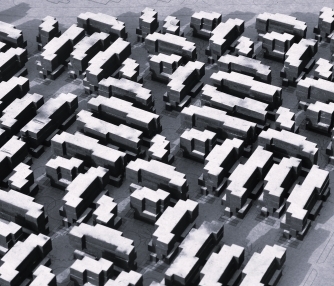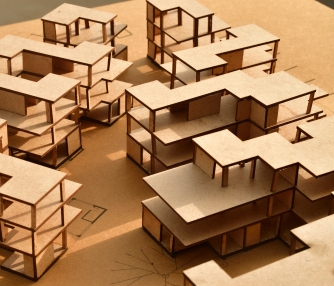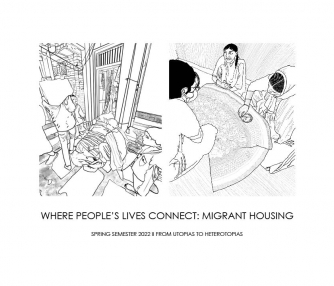- Tutor/s Imran Mansuri
- TA Zeel Patel
- Code UR2005
- Faculty Planning
- Level L2 Studio Unit
The course introduces the concepts of `housing-for-masses’ across space and time. The evolution of housing settlements through linking and stacking; their processes, determinants/generations, and resulting patterns are to be explored in their respective contexts exploring the balance between order and complexity. The idea, here, is to create an adaptive habitat for migrant communities associated with the very dynamic and socially interactive live-work environment. Here, “adaptability” is visualized and represented as a real space which is accommodating people from diverse /cultures and traditions over a period of time. The spaces, thus created, should have their own characteristics; the occupants should have the opportunities to alter these spaces in certain extended patterns. Eventually, this fluctuating habitat, over time, should be able to maintain a balance between generated orders and identified contextual complexities. The students will learn to analyze and identify issues with the linking and stacking of modular housing units by exploring various ensembles in response to the open spaces and adjacent urban contexts. The students should be able to explore housing structures, cluster orientations, and formations by balancing the underlying orders and complexities.
